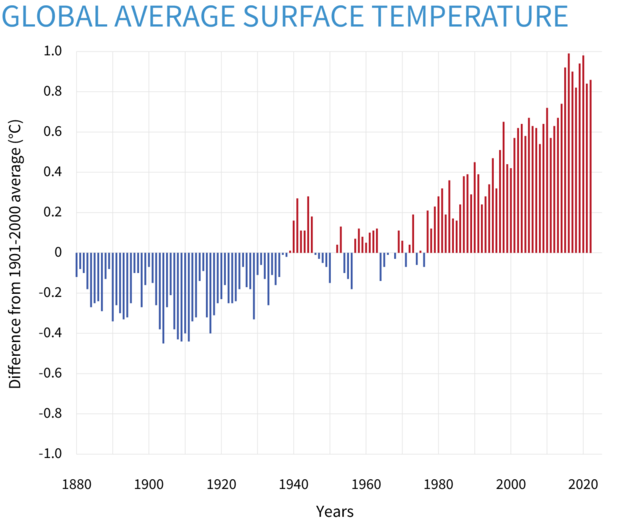Global Temperature & Climate Change Today
Climate change is a term used to describe long-term changes in temperature, precipitation, and other weather patterns that occur over decades or longer. It is a complex issue with far-reaching impacts on the environment, economy, and society. One of the most visible effects of climate change is the rise in global temperature.
The Impact of Current Climate Change on Global Temperature
Since the Industrial Revolution, human activities such as burning fossil fuels and deforestation have released large amounts of greenhouse gases, such as carbon dioxide and methane, into the atmosphere. These gases trap heat from the sun and cause the planet to warm. As a result, the global temperature has risen by about 1 degree Celsius (1.8 degrees Fahrenheit) since the late 1800s.
The impact of this temperature increase is already being felt around the world, with consequences including:
- More frequent and severe heat waves
- Changes in precipitation patterns, leading to more frequent and severe droughts and floods
- Melting of glaciers and ice caps, causing sea levels to rise
- Changes in the timing and behavior of plants and animals
Global Temperature Trends
Despite year-to-year variations in temperature, long-term trends show that the Earth is getting warmer. The graph below shows global temperature anomalies, which are deviations from the average temperature from 1951-1980, for the period from 1880 to 2020. The red line shows the long-term trend, which is clearly upward:
As the graph shows, the past decade has been the warmest on record, with each of the past four years setting new records for the highest global temperature.
What Can We Do?
Reducing greenhouse gas emissions is key to slowing down and eventually reversing the trend of global warming. Some ways to do this include:
- Using cleaner sources of energy, such as wind, solar, and hydropower
- Improving energy efficiency in buildings, transportation, and industry
- Reducing food waste and adopting more plant-based diets
- Protecting and restoring forests and other natural habitats
Individual actions can also make a difference. For example, reducing energy consumption at home, using public transportation or walking instead of driving, and reducing waste can all help to reduce greenhouse gas emissions.
The Importance of Acting Now
The impacts of climate change are already being felt around the world, and if left unchecked, they will only get worse. By taking action now to reduce greenhouse gas emissions and adapt to the changing climate, we can help to minimize the risks and build a more sustainable future.




Comments
Post a Comment